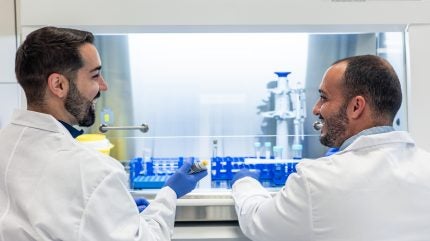
Abeona Therapeutics has secured US Food and Drug Administration (FDA) approval for Zevaskyn (prademagene zamikeracel), a gene-corrected cell therapy designed to treat recessive dystrophic epidermolysis bullosa (RDEB).
The approval follows years of clinical development and regulatory setbacks, and positions Abeona as the second company to bring a therapy for this condition to the US market.

Discover B2B Marketing That Performs
Combine business intelligence and editorial excellence to reach engaged professionals across 36 leading media platforms.
Also known as pz-cel, Zevaskyn is indicated for both paediatric and adult patients with RDEB. The therapy is administered as credit card-sized sheets of skin made from the patient’s own keratinocytes, which are harvested, genetically modified to express the functional COL7A1 gene, and surgically applied to chronic wounds. The COL7A1 gene encodes a type of collagen essential for anchoring skin layers – something patients with RDEB lack due to genetic mutations.
The FDA had previously rejected an application from Abeona last year, citing outstanding manufacturing and quality control (QC) concerns. Following a complete response (CR) letter and further chemistry, manufacturing and controls (CMC) submissions, the agency granted approval based on results from a pivotal Phase III study (NCT04227106).
Despite a partial clinical hold in 2019, the study met both co-primary endpoints of wound healing and pain reduction, with no serious treatment-related adverse events (AEs) reported. The company also provided confirmatory evidence from a Phase I/IIa trial (NCT01263379), which supported the durability of healing after a single application.
Zevaskyn is priced at $3.1m, placing it among the most expensive therapies in the US but in line with other rare disease gene and cell therapies. Abeona expects to make the product available commercially in Q3 2025. The company raised $35m in late 2022 after announcing the Phase III data, followed by a $25m financing round in July 2024 to support manufacturing and launch readiness.

US Tariffs are shifting - will you react or anticipate?
Don’t let policy changes catch you off guard. Stay proactive with real-time data and expert analysis.
By GlobalDataKrystal Biotech’s Vyjuvek (beremagene geperpavec), a topical gene therapy gel for DEB, was approved in 2023 and generated $290.5m in revenue in 2024. Unlike Zevaskyn, which is applied once through surgery, Vyjuvek is dosed weekly and costs around $631,000 per patient per year. Vyjuvek also delivers a functional COL7A1 gene, though via a re-dosable, non-integrating viral vector.
In the 29 April announcement, Abeona’s CEO Vish Seshadri, said: “We have heard from the RDEB community that there is a persistent unmet need to reliably address RDEB wounds, especially those that are chronic and prone to infection. Through a single surgical application, Zevaskyn can now offer people with RDEB the opportunity for wound healing and pain reduction in even the most severe wounds, as evidenced by the results from our pivotal Phase III study.”
In connection with the approval, Abeona received a rare paediatric disease priority review voucher (PRV), which the company said it plans to monetise. The PRV programme, which grants expedited FDA review for a future drug application, is set to expire soon unless renewed by Congress. Rare disease advocates have warned that the programme’s lapse, combined with existing FDA resource constraints, could deter future investment in paediatric rare disease research and development.


